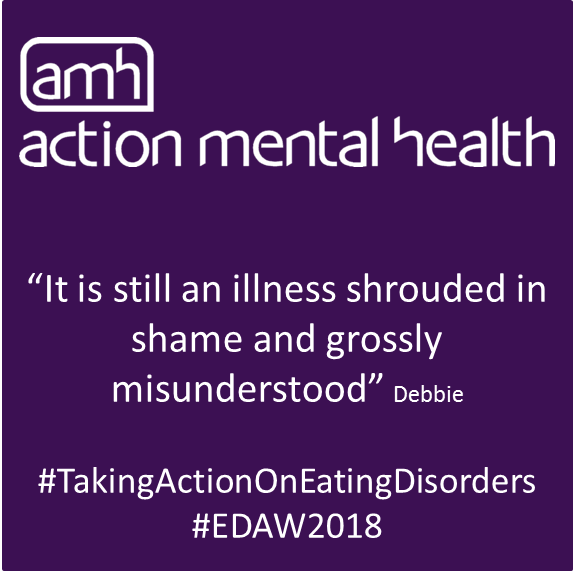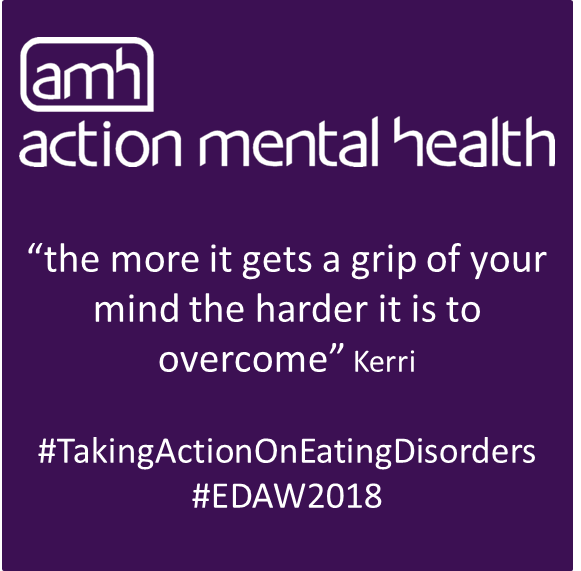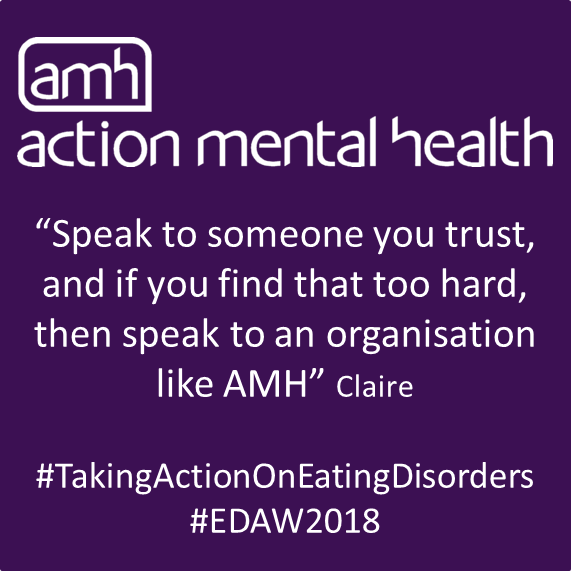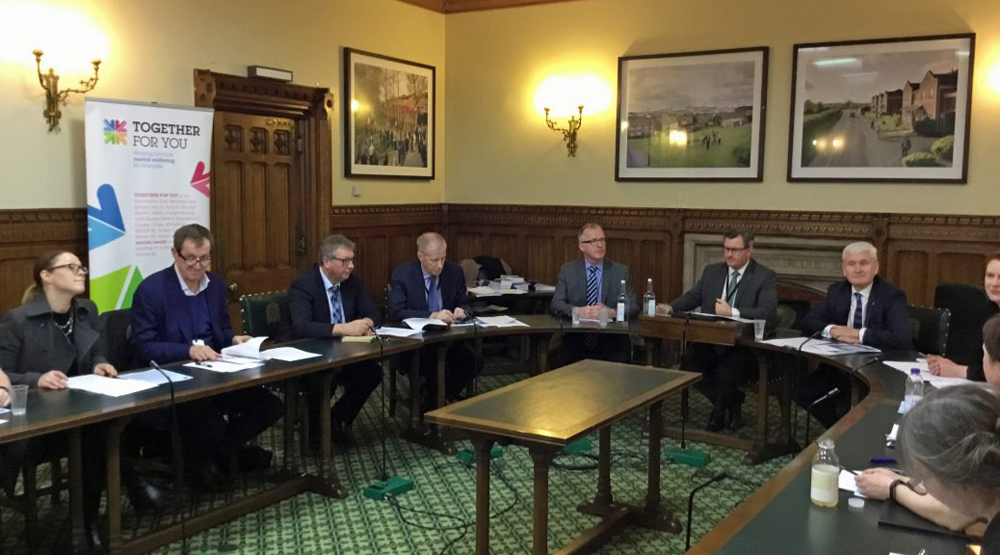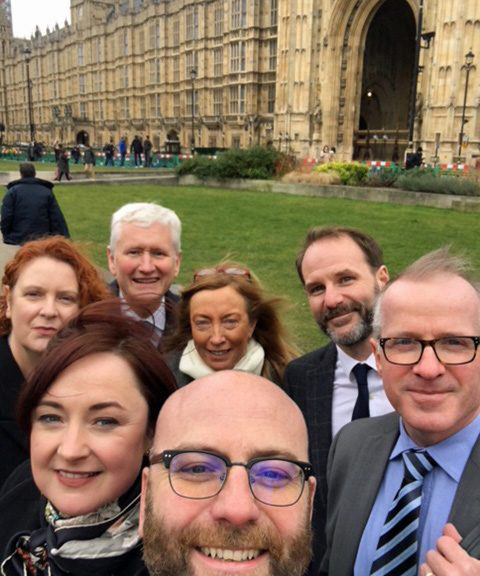Northern Ireland Mental health charities, Mental Health Foundation and Royal College of Psychiatrists highlight that more people have died from suicide since the Belfast Agreement than were killed during the Troubles
Together for You, a group of Northern Ireland’s mental health charities, lead by Action Mental Health, the Mental Health Foundation and the Royal College of Psychiatrists are to meet Westminster MPs and peers seeking action on the worsening mental health crisis in Northern Ireland. The meetings, which take place today – 20th February at Westminster, come just days after talks to restore the Power Sharing Stormont Executive spectacularly collapsed.
Recently the shock statistic was revealed that more people have died through suicide since the Belfast Agreement was signed than died in the entirety of the Troubles. More than 4,400 suicides were registered in Northern Ireland in the 19 years between 1998 and 2016, whilst during the Troubles, between 1969 and 1997, it is estimated that 3,600 people died.
The delegation, which is led by Action Mental Health and the Mental Health Foundation, say the worsening crisis is being exacerbated by Northern Ireland’s ongoing political dysfunction. Following this week’s collapse of talks to restore the Stormont Executive after 13 months of no functioning government in Northern Ireland, the advocates will demand that Westminster acts quickly to deliver the agreed mental health priorities. A range of initiatives already have cross party support including a regional trauma service to address the mental health legacy of the conflict.
The delegation, led by David Babington, Chief Executive of Action Mental Health and Dr Iris Elliott, Head of Policy and Research of the Mental Health Foundation, will highlight the dire state of Northern Ireland mental health service provision and the urgent need for clear policy and increased funding. David Babington of Action Mental Health said the group had come to London to say Westminster needs to sit up and take notice;
“The rest of the UK needs to understand that while we in Northern Ireland have endured over a year with no functioning government, our health service is being starved of funding and decision making, and we are seeing a deeply worrying rate of suicide. It’s hard to believe that more people have now died through suicide than were killed in the Troubles, but the statistic is very real and so is the suffering taking place here. This cannot be allowed to continue. Where is the duty of care to the people of Northern Ireland? Moreover, where is the £50 Million in extra funding for mental health which was promised nearly a year ago? Is anyone in charge?
He added,
“We have been calling for the appointment of a Mental Health Champion to work across government in Northern Ireland to tackle the mental health crisis for years. This appointment is more pertinent now than ever in the face of ongoing political deadlock. Northern Ireland has a 25% higher overall prevalence of mental illness than England – 1 in 5 adults here has a mental health condition at any one time. People are dying and this is simply unacceptable”
The Together for You Group and the Mental Health Foundation are attending a reception in Parliament hosted by Sir Jeffrey Donaldson on Mental Health in Northern Ireland: in the absence of a local Assembly, what now for mental health policy and funding?
Dr Iris Elliott of the Mental Health Foundation added,
“We cannot achieve a peaceful society in Northern Ireland without peaceful minds. If we invest in mental health support and work together to prevent mental health problems, then mental health will be an asset for our society.
The failure to deliver for mental health over the last 13 months, and indeed over the last 20 years since the Peace Settlement, is unacceptable. Mental Health Foundation is standing alongside Northern Ireland mental health charities and professional bodies to call for immediate Government action.
During the last 13 months we have lost so many opportunities to support people experiencing mental health problems and prevent their occurrence. Therefore, commitments secured need to be robustly monitored by politicians at Westminster. Whatever form of Government we have in Northern Ireland, mental health must be its top priority.”
The chair of the Northern Ireland Royal College of Psychiatrists, Gerry Lynch agreed,
“It is imperative that mental health policy and service development doesn’t stagnate in the absence of a devolved administration. Given the underfunding of mental health care in Northern Ireland, new policies and reforms must be driven forward as a matter of urgency”.
A reception will take place at 3pm on Tuesday 20th of February in Committee Room 19. Sir Jeffrey Donaldson, MP for Lagan Valley, will host and chair the event.
Speakers include:-
- David Babington – Chief Executive of Action Mental Health
- Dr Iris Elliott – Head of Policy and Research, Mental Health Foundation
- Dr Gerry Lynch – Chair of the Royal College of Psychiatrists in Northern Ireland
During the reception, we will bring together parliamentarians, practitioners, policy makers and academics interested in mental health in Northern Ireland to develop an agenda for action on mental health.
- Northern Ireland has a 25% higher overall prevalence of mental illness than England – 1 in 5 adults here have a mental condition at any one time.
- Inequality gaps for mental health indicators narrowed over the last five years. Despite this narrowing, the gaps for self-harm admissions and suicide remained large with the self-harm admission rate in the most deprived areas four times, and the crude suicide rate almost treble, that seen in the least deprived areas. The rate for mood and anxiety prescriptions was 69% higher in the most deprived areas than in the least deprived.
- More than 20% of young people are experiencing “significant mental health problems” by their 18th birthday. 17% of men and 32% of women aged 35-44 show signs of depression
- The rates of depression in Northern Ireland are associated closely with unemployment, low educational achievement and social deprivation
- A quarter of suicide inquiries in the UK showed that the individual died within three months of discharge from in-patient care. In England and Wales, 40% died before the first review appointment. This was 35% in Scotland and 66% in Northern Ireland
Briefing – Mental Health Crisis in Northern Ireland




